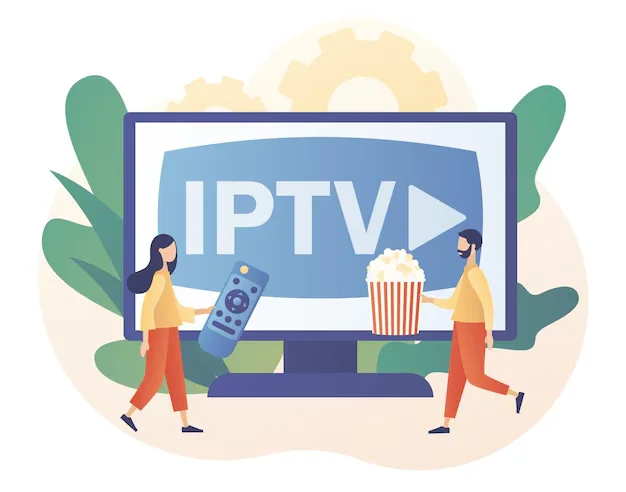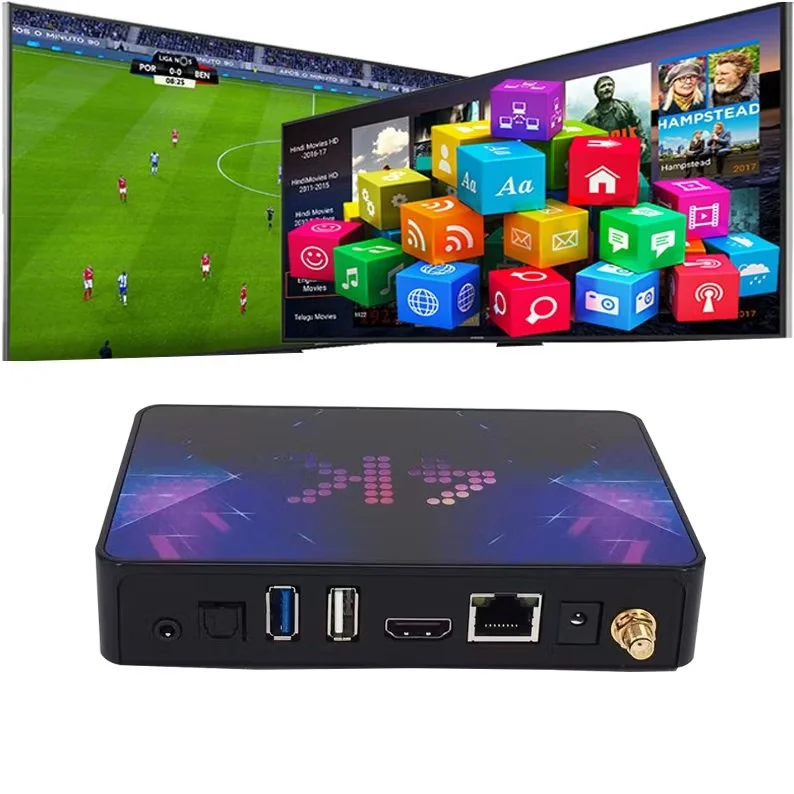IPTV Security: Protecting Your Streaming Experience
Internet Protocol Television (IPTV) has revolutionized how we consume media, offering unprecedented access to global content through internet connections rather than traditional broadcast methods. But as IPTV services grow in popularity, so do the security concerns surrounding them. How secure is your IPTV connection? What risks might you be exposing yourself to while streaming? These questions deserve careful consideration.
The digital nature of IPTV creates unique vulnerabilities that traditional television never faced. From data breaches to unauthorized access, the security challenges are significant. Yet many users remain unaware of the potential risks or the steps they can take to protect themselves while enjoying their favorite content.
![]()
In this comprehensive guide, we’ll explore the various security aspects of IPTV services, from understanding common threats to implementing practical protection measures. Whether you’re using affordable IPTV services or premium options, these security insights will help ensure your streaming experience remains safe and enjoyable.
Understanding IPTV Security Vulnerabilities
What makes IPTV systems vulnerable to security threats? Unlike traditional broadcast television, IPTV relies on internet protocols to deliver content, creating potential entry points for malicious actors. The primary vulnerabilities stem from the networked nature of these services. Data packets traveling across the internet can be intercepted, manipulated, or redirected if proper security measures aren’t in place.
One significant vulnerability is unencrypted streams. When content is transmitted without encryption, anyone monitoring network traffic can potentially access and view the data being sent. This is particularly concerning for users of public Wi-Fi networks, where network monitoring is relatively easy to accomplish. Has your IPTV provider implemented proper encryption? This question should be at the forefront of your security considerations.
Another common vulnerability involves user authentication systems. Weak password policies or inadequate authentication methods can lead to unauthorized access to IPTV accounts. In some cases, this might result in subscription theft, where others gain access to services you’re paying for. In more serious scenarios, compromised accounts could lead to personal information being exposed.

The set-top boxes and applications used to access IPTV services can also introduce security risks. Outdated software often contains known vulnerabilities that hackers can exploit. Some less reputable IPTV apps may even contain malware or adware that compromises your device’s security or collects data without proper consent.
Understanding these vulnerabilities is the first step toward protecting yourself. When choosing an IPTV service, it’s crucial to consider their security practices alongside other features like channel selection or streaming quality. The most extensive channel lineup loses its appeal if your personal data is at risk.
Common IPTV Security Threats
The IPTV ecosystem faces several specific security threats that users should be aware of. Distributed Denial of Service (DDoS) attacks represent one of the most common threats to IPTV infrastructure. These attacks overwhelm servers with traffic, causing service disruptions and streaming outages. While these primarily target service providers, the end result affects users through interrupted viewing experiences and potential service downtime.
Man-in-the-middle attacks pose another significant threat. In these scenarios, attackers position themselves between you and your IPTV provider, intercepting and potentially altering the data being transmitted. This can lead to content manipulation, credential theft, or even the injection of malicious content into your streams. Have you ever considered who might be monitoring your streaming activity? Without proper security measures, your viewing habits and personal information could be exposed.
Malware specifically targeting IPTV users has become increasingly common. These malicious programs often disguise themselves as legitimate IPTV applications or addons. Once installed, they can steal login credentials, track user behavior, or even take control of devices. Some particularly aggressive forms of malware might use your device as part of a botnet for criminal activities.

Credential stuffing attacks target IPTV services by using stolen username and password combinations from other data breaches. Since many people reuse passwords across multiple services, attackers can gain access to IPTV accounts using credentials stolen from entirely different websites. This highlights the importance of using unique passwords for your IPTV subscription and other online accounts.
Phishing attempts specifically targeting IPTV users have increased as the popularity of these services has grown. These typically involve emails or messages claiming to be from your IPTV provider, requesting that you “verify” your account details or update payment information. The links in these messages lead to fake websites designed to steal your login credentials or financial information.
Understanding these threats allows you to recognize potential security incidents and take appropriate action before serious harm occurs. Remember that security is not just the responsibility of your IPTV provider—your own practices play a crucial role in maintaining a secure streaming environment.
Encryption and Secure Connections
Encryption serves as the foundation of IPTV security, transforming your streaming data into code that can only be deciphered by authorized recipients. But how exactly does encryption protect your IPTV experience? At its core, encryption ensures that even if someone intercepts your streaming data, they cannot view or use it without the proper decryption keys.
The most secure IPTV services implement end-to-end encryption, protecting data from the moment it leaves the provider’s servers until it reaches your device. This comprehensive approach eliminates vulnerabilities at various points in the transmission process. When evaluating IPTV providers, look for those that explicitly mention their encryption protocols—terms like AES (Advanced Encryption Standard) or TLS (Transport Layer Security) indicate robust protection.
Secure connections extend beyond just the content streams. The login portals and account management systems should also implement HTTPS, ensuring that your credentials and personal information remain protected during transmission. You can verify this by checking for the padlock icon in your browser’s address bar when accessing your provider’s website.

Virtual Private Networks (VPNs) add another layer of security to your IPTV connection by creating an encrypted tunnel for all your internet traffic. This not only protects your streaming data but also masks your IP address and location. When choosing a VPN for IPTV use, prioritize services with strong encryption, no-logs policies, and servers in multiple locations to ensure optimal streaming performance.
Some IPTV services offer their own proprietary security features. These might include tokenized authentication systems, which generate temporary access codes rather than relying solely on static username/password combinations. These advanced security measures provide additional protection against unauthorized access and account sharing.
For users of IPTV Smarters Pro and similar applications, enabling available security features within the app itself adds another protective layer. These might include options to encrypt local playlists, require PIN access, or implement session timeouts that automatically log you out after periods of inactivity.
Remember that encryption and secure connections form just one part of a comprehensive security approach. They must be combined with other security practices to provide thorough protection for your IPTV experience.
Securing Your IPTV Devices
Your IPTV experience is only as secure as the devices you use to access it. Whether you’re streaming through a dedicated set-top box, a smart TV, or apps on your mobile devices, each presents unique security considerations. How can you ensure these devices don’t become the weak link in your IPTV security chain?
Regular software updates represent the most fundamental aspect of device security. Manufacturers frequently release patches that address newly discovered vulnerabilities. Enabling automatic updates on your streaming devices ensures you’re protected against known security flaws. This is particularly important for devices like the Fire TV Stick with IPTV Smarters, which regularly receive security patches.
Password protection for your devices creates an essential first line of defense. Set strong passwords or PIN codes for accessing your streaming devices, especially those in shared living spaces or public environments. This simple step prevents unauthorized users from accessing your IPTV subscriptions or making changes to your device settings.

Application sources matter significantly for security. Only download IPTV apps from official app stores or directly from trusted provider websites. Third-party app stores and sideloaded applications often lack the security vetting process of official channels, potentially introducing malware to your device. For example, when installing IPTV Smarters Pro APK, ensure you’re getting it from the official source.
Network security plays a crucial role in device protection. Configure your home router with strong security settings, including WPA3 encryption if available, unique passwords, and regular firmware updates. Consider creating a separate guest network for your IPTV devices to isolate them from other, potentially more sensitive devices on your network.
For mobile devices used for IPTV streaming, additional security measures are advisable. Enable biometric authentication where available, install mobile security software, and be cautious about the permissions you grant to IPTV applications. Do they really need access to your contacts or location data? Reviewing and restricting unnecessary permissions reduces potential data exposure.
If you’re using a dedicated IPTV box, consider the physical security aspects as well. These devices often store your login credentials and may have direct access to payment information. Ensure these devices are placed in secure locations, especially in public settings like hotels or shared accommodations.
User Authentication and Account Security
The security of your IPTV account begins with proper authentication practices. Strong passwords serve as your first line of defense against unauthorized access. But what makes a password truly strong? The most secure passwords combine length (at least 12 characters), complexity (mixing uppercase, lowercase, numbers, and symbols), and uniqueness (not used for any other service). Consider using a password manager to generate and store complex passwords without having to remember them all.
Two-factor authentication (2FA) dramatically improves account security by requiring something you know (your password) and something you have (typically your mobile phone). When available through your IPTV subscription provider, enabling 2FA should be considered essential. This additional verification step makes your account significantly harder to compromise, even if your password is somehow exposed.
Regular account audits help identify potential security issues before they become serious problems. Periodically review your account for any unusual activity, such as unexpected device connections or streaming from unfamiliar locations. Many IPTV services provide logs of recent connections—reviewing these can help you spot unauthorized access attempts.

Credential sharing, while common among friends and family, introduces significant security risks. Each additional person with access to your account represents another potential point of failure in your security posture. If you must share your subscription, consider providers that offer multi-connection options with separate login credentials for each user, rather than sharing your primary account details.
Payment security deserves special attention when subscribing to IPTV services. Use payment methods that offer strong fraud protection, such as credit cards or secure online payment systems. Avoid providing direct bank account information when possible. Some providers now accept cryptocurrency payments, which can offer additional privacy benefits when properly implemented.
Account recovery options should be configured securely to prevent unauthorized access through “forgot password” features. Use a dedicated email address for your IPTV account recovery, ensure this email account itself has strong security measures, and be cautious about the recovery questions you select—choose answers that aren’t easily discoverable through social media or public records.
Remember that your account security extends beyond just your IPTV service. If you use the same email and similar passwords across multiple services, a breach at any one of them could compromise your IPTV account. Practicing good security hygiene across all your online accounts helps protect each individual service.
Privacy Considerations for IPTV Users
Privacy and security are closely intertwined in the IPTV ecosystem. What data does your IPTV service collect about you, and how is it used? Most providers gather viewing habits, device information, and location data—sometimes for legitimate purposes like service improvement, but potentially also for targeted advertising or third-party sharing. Reviewing the privacy policy of your IPTV plan provider reveals what information is collected and how it’s handled.
VPNs offer significant privacy benefits for IPTV users by masking your real IP address and encrypting your connection. This prevents your internet service provider from monitoring your streaming activities and protects your viewing habits from being tracked. When selecting a VPN for privacy purposes, prioritize services with strict no-logs policies that have been independently audited.
DNS leaks can undermine your privacy efforts even when using a VPN. These leaks occur when your device sends DNS queries outside the encrypted VPN tunnel, potentially revealing your browsing activities. Using DNS leak protection features in your VPN or configuring your device to use secure DNS servers helps prevent this privacy vulnerability.

Tracking technologies within IPTV applications can collect substantial data about your viewing habits and device usage. Some apps employ analytics tools, cookies, or even more invasive tracking methods. Reviewing app permissions and disabling unnecessary tracking features helps maintain your privacy. Some privacy-focused IPTV apps like MegaOTT offer enhanced privacy controls compared to standard options.
Metadata privacy often gets overlooked in discussions about IPTV security. Even when your content streams are encrypted, metadata—information about what you’re watching, when, and for how long—may still be collected. This data can create detailed profiles of your viewing preferences and habits. Using privacy-focused DNS services and considering metadata-resistant streaming options helps address this concern.
The legal implications of privacy in IPTV vary by jurisdiction. Some regions have strong data protection regulations that limit what information providers can collect and how they must protect it. Understanding the privacy laws in your location helps you assess whether your provider is meeting legal requirements for data protection and gives you recourse if your privacy is violated.
Remember that privacy is often a trade-off with convenience. Services that offer personalized recommendations and seamless cross-device experiences typically require more data collection. Deciding where your personal privacy threshold lies helps you choose services that align with your comfort level.
Best Practices for Secure IPTV Usage
Implementing a comprehensive security approach for your IPTV experience combines technical measures with mindful user behavior. Regular security audits should become part of your routine, checking for outdated software, reviewing connected devices, and verifying account settings. Setting a quarterly reminder to perform these checks helps maintain your security posture over time.
Choosing reputable IPTV providers represents perhaps the most crucial security decision you’ll make. Research potential services thoroughly, looking for transparent security practices, clear privacy policies, and positive user reviews regarding reliability and support. Providers like IPTV4Cheap that openly discuss their security measures often demonstrate greater commitment to protecting their users.
Network segmentation offers advanced protection for security-conscious users. By creating separate network segments for your IPTV devices—either through VLAN configuration on advanced routers or by using separate networks entirely—you limit the potential damage if a streaming device is compromised. This prevents attackers from moving laterally to more sensitive devices on your network.

Content verification becomes increasingly important as sophisticated scams target IPTV users. Before entering credentials or payment information, verify you’re on the legitimate provider website by checking the URL carefully and confirming the presence of security indicators like HTTPS. Bookmark official sites rather than following links from emails or messages to avoid phishing attempts.
Family education matters when multiple household members use IPTV services. Ensure everyone understands basic security practices, such as not sharing credentials outside the household, recognizing phishing attempts, and avoiding the installation of unofficial or unknown applications. Security awareness among all users strengthens your overall protection.
Backup authentication methods provide contingency options if your primary access method is compromised. Where supported, configure alternate authentication options like backup email addresses or recovery codes, and store these securely. This preparation prevents extended service disruptions if you need to recover your account.
Following the setup guide provided by your IPTV service ensures you configure security features correctly from the start. These guides often include specific security recommendations for the provider’s ecosystem that generic advice might miss. Pay particular attention to sections addressing security settings and best practices.
By combining these practices with the technical measures discussed throughout this article, you create a robust security framework for your IPTV experience—one that protects your personal information, payment details, and viewing privacy while still allowing you to enjoy the convenience and flexibility that IPTV offers.
Future of IPTV Security
The landscape of IPTV security continues to evolve rapidly. What emerging technologies and approaches will shape the future of secure streaming? Artificial intelligence and machine learning are increasingly being deployed to detect unusual patterns that might indicate security breaches. These systems can identify anomalous viewing behavior, suspicious login attempts, or potential network intrusions far more effectively than traditional rule-based approaches.
Blockchain technology offers promising applications for IPTV security, particularly for content authentication and access management. Decentralized authentication systems based on blockchain could provide more secure and transparent methods for verifying legitimate users while reducing the risk of credential theft. Some affordable IPTV providers are already exploring blockchain-based solutions for subscription management.
Advanced encryption protocols continue to develop, offering stronger protection with lower performance impacts. As quantum computing advances threaten current encryption methods, IPTV services will need to implement quantum-resistant algorithms to maintain security. Forward-thinking providers are already planning for this transition to ensure long-term protection of user data.

Biometric authentication is likely to become more prevalent in IPTV security frameworks. Fingerprint scanning, facial recognition, and even behavioral biometrics offer more convenient yet highly secure ways to verify users compared to traditional passwords. As these technologies become standard on streaming devices, expect to see greater integration with IPTV applications.
Regulatory changes will significantly impact IPTV security practices. Governments worldwide are implementing stricter data protection laws and specific regulations for digital media services. These evolving legal frameworks will force providers to implement stronger security measures and more transparent data handling practices, ultimately benefiting users through enhanced protection.
Zero-trust security models are gaining traction across digital services, including IPTV. This approach assumes no user or device should be automatically trusted, requiring continuous verification regardless of location or network connection. For IPTV users, this might mean more frequent authentication requests but also significantly improved security against account takeovers and unauthorized access.
The integration of IPTV customer service with security operations will create more responsive security ecosystems. When potential security incidents are detected, automated systems can immediately alert both users and support teams, enabling faster responses to potential breaches and reducing the impact of security events.
As these technologies mature and become more widely implemented, IPTV users can expect a more secure streaming environment that balances robust protection with user convenience. The providers who embrace these advancements will distinguish themselves in an increasingly competitive market where security has become a key differentiator for discerning customers.